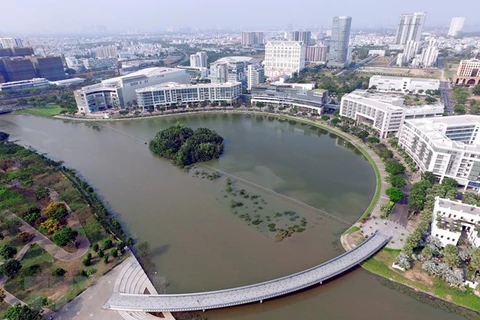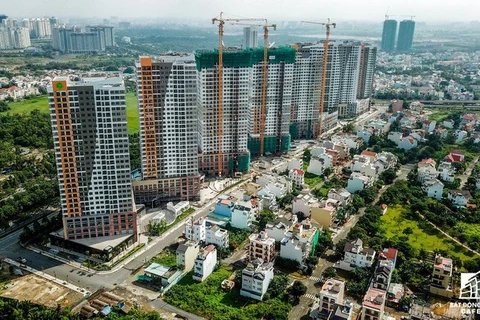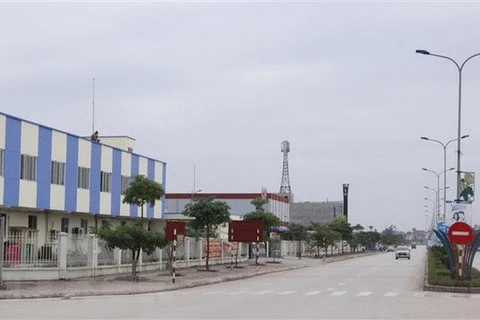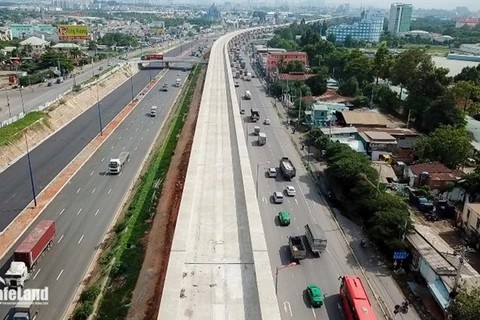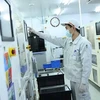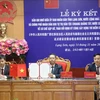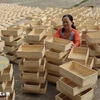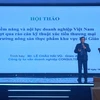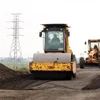 The growth of the Vietnamese auto industry presents a chance for industrial real estate developers to cash in. (Photo: diendanbatdongsan.vn)
The growth of the Vietnamese auto industry presents a chance for industrial real estate developers to cash in. (Photo: diendanbatdongsan.vn) Hanoi (VNS/VNA) - New policies promoting development of the domestic automobile sector will create opportunities for the industrial real estate market, according to a CBRE Vietnam report released in December.
The report said recent rapid changes in Vietnam’s regulations, policies and international trade agreements have had a significant positive impact on the automobile market. These changes will help not only the industry but also the consumer market.
For the industrial real estate market, the most important factor is the increased demand for production space, the report said.
The Vietnamese automobile industry still has much to do to compete with regional rivals. The State will introduce policies encouraging the domestic automobile industry to develop its production and business, according to the report.
Industrial land developers will have new opportunities to exploit the expansion in manufacturing and business demand. Real estate developers can offer the Government and automakers logistics solutions by clustering production and supply activities into specialised automobile manufacturing complexes.
In 2017, the Government issued Decree 116 and Decree 125 to support the Vietnamese car manufacturing industry by applying a legal framework to expand production scale and improve product quality.
There have been major industrial and commercial lease deals related to the automobile sector over the past three years, with anticipated demand for lease extensions in the near future.
High occupancy and rising rental rates are challenges for expanding production.
However, they present a chance for real estate developers to note the increasing demand for space and the current limited supply, said the report.
According to the report, the automobile industry in Vietnam is still underdeveloped in manufacturing and assembly compared to other ASEAN countries, but the accumulation of industrial land for the industry is increasing.
At the same time, each region in Vietnam has distinct competitive advantages based on differences in business and production as well as land availability.
The southern region accounts for about 43.16 percent of total automobile sales in Vietnam, but the production capabilities of the Southern area – including HCM city, Dong Nai, Binh Duong and Long An provinces – are much smaller than those of the other regions.
Assembly is mainly distributed in the north with a network of foreign original equipment manufacturers (OEMs) as well as auto part manufacturing facilities.
The establishment of VinFast factories has strengthened the automobile assembling and manufacturing platforms in the North. With a strong base and rich history of assembly and auto part production, the demand for large industrial land banks for manufacturing factories is worth considering in the Northern region.
The central region, on the other hand, is the least developed area for the industry. Da Nang city and Quang Nam province boast the relatively high density of manufacturers, especially with the presence of Chu Lai-Truong Hai Automobile Complex, developed by THACO. The complex is a fully integrated facility including factories for assembling and manufacturing, warehouses and a dedicated deep-sea port.
Over the past three years, many successful industrial land rental transactions have been recorded in the Southern region and most of them have belonged to accessory factories looking to expand production.-VNS/VNA
VNA
